

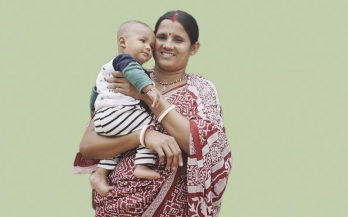
100 Million FullCare Tablets and Counting: A Milestone for Maternal Nutrition in Bangladesh
We are thrilled to share a major milestone in Bangladesh’s journey to improve maternal nutrition: more than 100 million Multiple Micronutrient Supplement (MMS) tablets, marketed under the brand name “FullCare”, have been sold since the launch of the country’s first locally produced UNIMMAP-formulated MMS.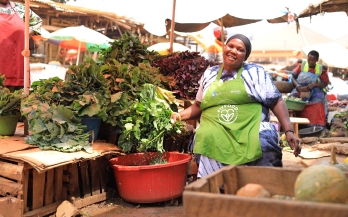
How A Market Stall Became A Wellness Classroom
Vegetables For All Project – Uganda Impact Stories highlights how access to sustainable vegetable farming is transforming lives and communities in Uganda.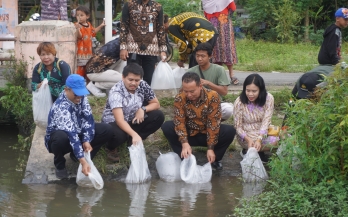
A New Small Fish Restocking Model Projects 20x Production Improvement in Indonesia
As an archipelagic nation, Indonesia ranks third globally in fisheries and aquaculture production. Despite these abundant, nutrient-rich aquatic resources, the country still faces significant malnutrition challenges stemming from insufficient intake of protein, micronutrients, and essential fatty acids. In 2021, the average per capita fish consumption in Indonesia reached 25.33 kg, notably lower than Malaysia (52.7 kg), a nation with fewer resources (KKP, World Population Review). This disparity highlights the gap between resources availability and dietary outcomes.
Uganda at the Table Accelerating Food Systems Transformation
EP 28
Why Uganda, an agricultural powerhouse still struggles with high malnutrition rates.
40 minutes ▶ Play this episode
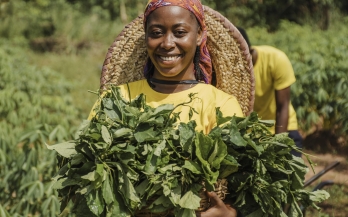
Gender Analysis of Food Systems Policies:Supporting gender responsive policies and policy development processes in Nigeria.
- 22/12/2025
Nigeria’s food systems are critical for national development, yet women face deep-seated gender inequalities that restrict their participation, productivity, and access to resources, significantly hindering overall food security. Achieving a resilient and equitable food system requires moving beyond genderneutral rhetoric towards intentional policy shifts, fostering inclusive governance, and investing in gender equity across the entire food system. Prioritise equitable access to productive resources, strengthen women’s leadership in decision-making, enhance gender-disaggregated data systems, and champion community-led social norm change to build a sustainable food system where no one is left behind.
Latest Review Series reveals USD 11 Trillion Bill in Food System’s Hidden Costs, a Significant Underestimation
Latest Review Series reveals USD 11 Trillion Bill in Food System’s Hidden Costs, a Significant Underestimation • A partial USD 11 trillion bill: According to FAO’s latest estimates, food systems cost the world over USD 11 trillion per year in hidden health, socioeconomic, and environmental burdens – an amount larger than the GDP of most major economies. However, this figure likely represents a substantial underestimation of true costs and benefits as it does not capture all relevant negative and positive impacts. • Health costs are the largest contributor, but micronutrient malnutrition remains invisible: Diet-related diseases, premature mortality, and productivity losses from illness are the biggest drivers of these costs, yet we are still failing to measure the true price of micronutrient malnutrition. • The equity crisis: Existing research and data are heavily skewed toward high-income countries, leaving the severe burdens in low- and middle-income nations largely hidden.
Quantifying the Socio-Economic Impacts of Food: A Review of True Cost Accounting Methods
- 15/12/2025
Global food systems generate significant socio-economic impacts (or externalities) – both positive and negative – which greatly vary across geographic regions, supply chains, and production systems.
Belensesses Market — A Photo Story
In the heart of Nampula, an old market is shifting into something new and so are the lives within it. What began as an ordinary field visit became an unexpected turning point, captured through a lens that witnessed far more than change in bricks and sand. This photo story follows that quiet transformation: the people who have waited for it, the place that needed it, and the question that emerged and only later found its answer.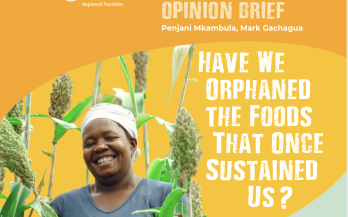
Have We Orphaned The Foods That Once Sustained Us
- 04/12/2025
Orphaned crops refer to a diverse group of foods, including cereals, legumes, vegetables, and fruits, that have been largely overlooked by mainstream agricultural research, breeding programs, and markets. Many orphan crops contain higher concentrations of vitamins, minerals, and protein than major cereals. In soci eties facing a double burden of undernutrition and rising diet-related diseases, orphaned crops provide a crucial bridge. They nourish without harming. Nutrition education in schools and public health programs can normalize the consumption of traditional foods, while media and culinary initiatives can make them fashionable. Changing perception is just as critical as changing production.